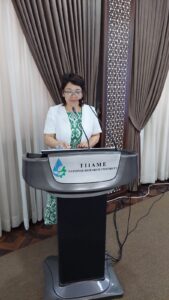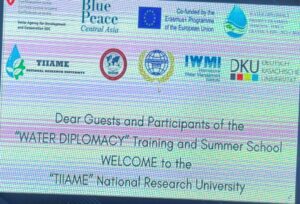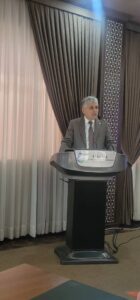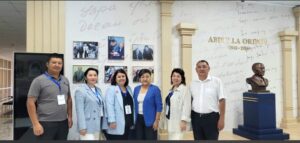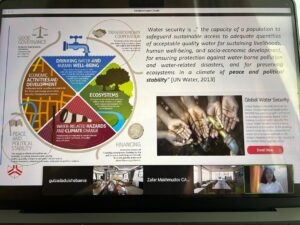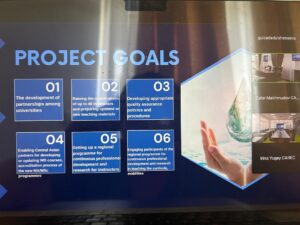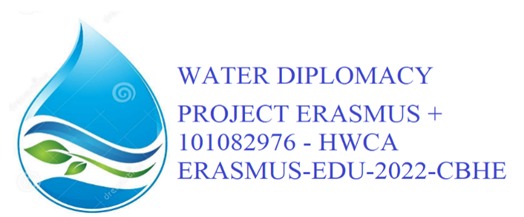From August 5 to 16, 2024, a training on water diplomacy for CA university faculty members and a Summer School for young researchers (master’s and PhD students) are being held in Tashkent at the TIIAME NRU and UWED within the Erasmus+ “Strengthening Higher Education in the Water Sector for Climate Resilience and Security in Central Asia” (HWCA) project, with the financial support of the Erasmus+ Programme of the European Commission and CAREC.
The Erasmus+ HWCA project aims to support partner universities in Central Asia in creating conditions for training a new generation of managers and decision-makers in the water sector of Central Asia, including water diplomats capable of effectively addressing new challenges related to climate change and regional security.
One of the primary objectives of the HWCA project is to ensure the dissemination and sustainability of the project results, increase the capacity of faculty members and young researchers, and raise public awareness through active engagement between universities and stakeholders in the Central Asian region.
The water diplomacy training aims to deepen participants’ knowledge and skills in the field of water diplomacy, share experiences and best practices, and foster cooperation among various stakeholders to ensure sustainable integrated water resources management in Central Asia. The training is conducted in a hybrid format with the support of leading international and national experts, consultants, and practitioners in water management and water diplomacy, representing IHE Delft, the United Nations University, CAREC, SIC ICWC, IWRM, the World Bank, the University of Fribourg, URCA, the University of Bergamo, the Institute of Water Problems and Hydroenergy of the National Academy of Sciences of the Kyrgyz Republic, the Ministry of Water Resources and Irrigation of Kazakhstan, the Ministry of Ecology, Environment and Climate Change of Uzbekistan, and others.
The participants of the training include faculty members and researchers representing the project HWCA consortium partners, DA MFA KR, TIIAMF NR, UWED, KNAU named after K. Skryabin, KATRU, KNU, Dulaty University, AGU, TAU, Makhtumkuli TSU, APAPRT. Upon completion of the training, participants will be able to: 1) distinguish and substantiate the main discourses and approaches to water diplomacy; 2) understand relevant global and regional issues; 3) assess the institutional and legal frameworks and historical development of water diplomacy in Central Asia; 4) understand the technical, economic, legal, and political issues of water diplomacy in Central Asia; 5) apply experience and lessons learned in conflict prevention and management in water diplomacy; 6) develop bilateral and multilateral negotiation skills; and 7) improve English language skills through practical sessions.
The project will assist in capacity building needed to promote and implement integrated water resources management, adaptive water management, strengthen regional cooperation, and achieve more effective mobilization and use of private investment and international assistance.
The HWCA project consortium consists of 16 universities: 12 universities from Central Asian countries (Kazakhstan, Kyrgyzstan, Tajikistan, Uzbekistan, and Turkmenistan) and 4 universities from Europe. The Diplomatic Academy of the Ministry of Foreign Affairs of the Kyrgyz Republic is the coordinator of the HWCA regional project.
